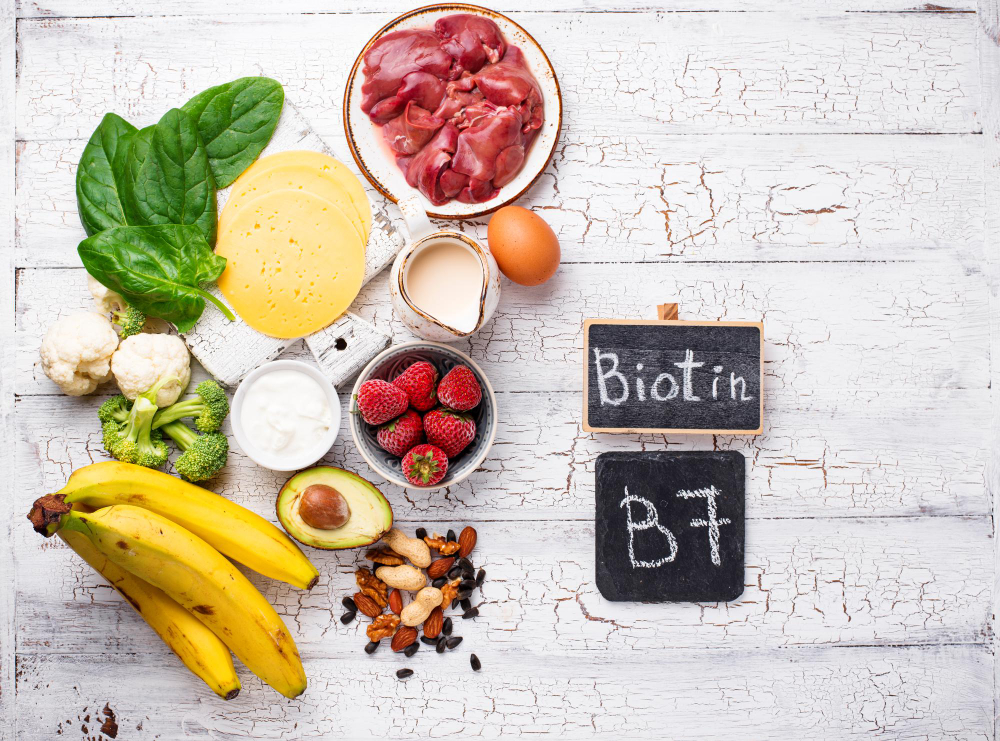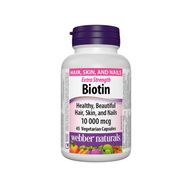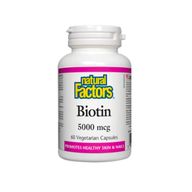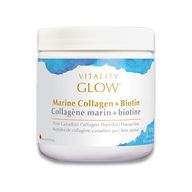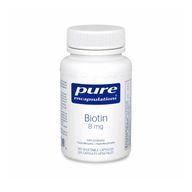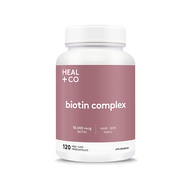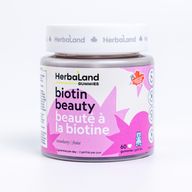Biotin: the Essential Vitamin for Hair, Skin, Nails and more
Welcome to today's Lifeplus blog post, where we dive into the captivating world of biotin. Biotin, also known as vitamin B7, is a vitamin that plays a vital role in various metabolic processes in humans. The term 'biotin' originates from the Ancient Greek word 'βίοτος', (bíotos), meaning 'life'. Let us uncover the wonders of this essential nutrient and discover how it can contribute to your overall well-being.
What is Biotin?
Biotin is a water-soluble B vitamin. It stimulates differentiation of the epidermis and promotes the production of keratins. These proteins provide support to epithelial cells and are critical in maintaining the structure of skin, hair and nails. Biotin is also an essential co-factor in the metabolism of carbohydrates, proteins, and fats, making it a key part of maintaining optimal energy levels.
Health Benefits of Biotin
1. Promotes Healthy Hair, Skin and Nails
One of the most well-known benefits of biotin is its ability to enhance the health of our hair, skin, and nails. Several studies have established a positive relationship between biotin supplementation and improvements in these areas.
A study published in the Cutis, a peer-reviewed clinical journal for dermatologist, found that individuals with brittle nails experienced a significant improvement in nail thickness and firmness after taking biotin supplements for several months.
In a review published on Skin Appendage Disorders Journal, the researchers summarized 18 documented cases where biotin supplementation was used to address hair and nail issues. The experiment subjectives had underlying conditions or pathology that affected the growth and health of their hair or nails. Encouragingly, all of the reported cases demonstrated noticeable clinical improvement following the administration of biotin supplementation.
Furthermore, biotin contributes to maintaining healthy skin by supporting the production of fatty acids that nourish the skin and prevent dryness and inflammation. Research published on Pediatric Dermatology has indicated that biotin supplementation may aid in the treatment of skin conditions such as seborrheic dermatitis and acne.
2. Supports Metabolism and Energy Production
Biotin is involved in the metabolism of carbohydrates, fats, and proteins. It helps convert these macronutrients into energy that the body can utilize efficiently. Several studies have examined the role of biotin in metabolism and energy production. This is particularly beneficial for individuals with diabetes or those at risk of developing the condition.
A systematic review published in 2022 on Frontiers in Nutrition analyzed 5 random controlled trials involving 445 patients with type 2 diabetes. Biotin supplementation significantly decreased their level of fasting blood glucose, total cholesterol and triglycerides.
Moreover, biotin is essential for the synthesis of enzymes that are involved in fatty acid metabolism. By promoting efficient metabolism, biotin helps maintain a healthy weight and supports overall energy levels.
3. Enhances Cognitive Function
Biotin's impact extends beyond physical health. Studies have suggested a connection between biotin and cognitive function, highlighting its role in maintaining a healthy brain. The brain is highly responsive to the supply and processing of glucose, and biotin plays a crucial role in glucose metabolism and regulation, as well as in maintaining optimal blood clotting.
Biotin's influence on brain health may also be attributed to its involvement in the synthesis of neurotransmitters, the chemical messengers that facilitate communication between brain cells. By ensuring optimal neurotransmitter function, biotin may contribute to improved cognitive abilities.
A study published on Brain Research found that deficiency in biotin led to a decline in short-term memory and locomotor activity. This deterioration may be linked to reduced dopamine levels and decreased PKA (protein kinase A) activity in the hippocampus.
4. Supports Pregnancy and Fetal Development
During pregnancy, the demand for essential nutrients increases significantly. Biotin is no exception, as it plays a vital role in fetal development and maternal health.
A study published in the Journal of Medical Investigation highlighted the potential risks of maternal biotin deficiency during pregnancy, specifically the increased risk of preterm labor or fetal growth restriction. Biotin deficiency has also been linked to birth defects, particularly developmental abnormalities in the central nervous system. It is crucial for pregnant women to ensure adequate biotin intake to support the healthy growth of the fetus.
Additionally, biotin supports the well-being of expectant mothers by promoting healthy skin, hair, and nails, which may undergo changes during pregnancy.
Recommended Dosage
An RDA (Recommended Dietary Allowance) does not currently exist for biotin; however, an Adequate Intake (AI) level has been established to ensure nutritional adequacy. The AI for biotin is set at 30 micrograms per day for men and women aged 19 and older, with an increased AI of 35 micrograms per day for lactating women.
Unlike some other nutrients, biotin does not have a Tolerable Upper Intake Level (UL) established. The UL represents the maximum daily dose that is unlikely to cause adverse side effects in the general population.
As a water-soluble vitamin, biotin does not exhibit any evidence of toxicity in humans, even at high intake levels. Any surplus biotin that the body does not require is efficiently eliminated through urine. Therefore, there is no established upper limit or toxic threshold for biotin.
References
Patel DP, Swink SM, Castelo-Soccio L. A Review of the Use of Biotin for Hair Loss. Skin Appendage Disord. 2017;3(3):166-169.
Floersheim GL. Treatment of brittle fingernails with biotin. Z Hautkr. 1989;64(1):41-48.
Hochman LG, Scher RK, Meyerson MS. Brittle nails: response to daily biotin supplementation. Cutis. 1993;51(4):303-305.
Fernández-Gaxiola AC, Dehesa-López E, López-Colombo A, et al. Double-blind, randomized clinical assay comparing topical zinc oxide with oral biotin plus dexpanthenol for treating seborrheic dermatitis. Pediatr Dermatol. 2014;31(3):267-272.
Zhang, Y., Ding, Y., Fan, Y., Xu, Y., Lu, Y., Zhai, L., & Wang, L. (2022). Influence of biotin intervention on glycemic control and lipid profile in patients with type 2 diabetes mellitus: A systematic review and meta-analysis. Frontiers in nutrition, 9, 1046800. https://doi.org/10.3389/fnut.2022.1046800
Kennedy D. O. (2016). B Vitamins and the Brain: Mechanisms, Dose and Efficacy--A Review. Nutrients, 8(2), 68. https://doi.org/10.3390/nu8020068
Munzuroğlu, M., Danışman, B., Akçay, G., Yelli, İ., Aslan, M., & Derin, N. (2022). Effects of biotin deficiency on short term memory: The role of glutamate, glutamic acid, dopamine and protein kinase A. Brain research, 1792, 148031. https://doi.org/10.1016/j.brainres.2022.148031
Ichihara, Y., Suga, K., Fukui, M., Yonetani, N., Shono, M., Nakagawa, R., & Kagami, S. (2020). Serum biotin level during pregnancy is associated with fetal growth and preterm delivery. The journal of medical investigation : JMI, 67(1.2), 170–173. https://doi.org/10.2152/jmi.67.170
